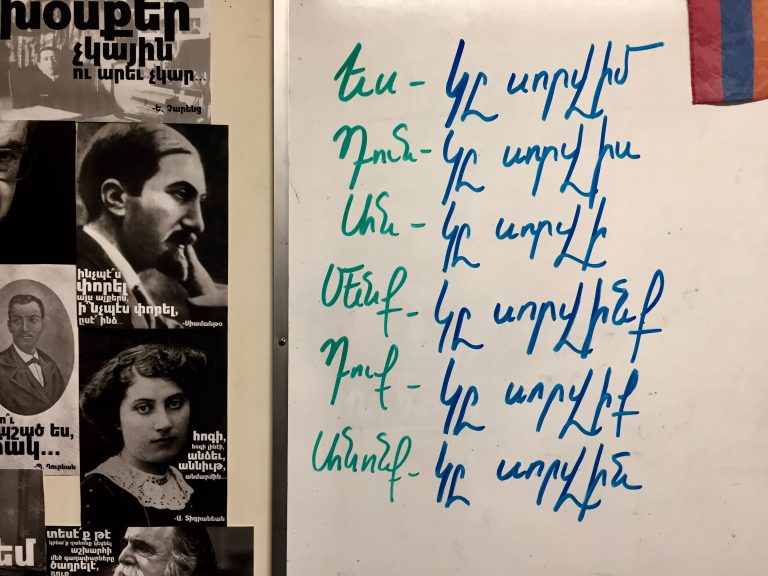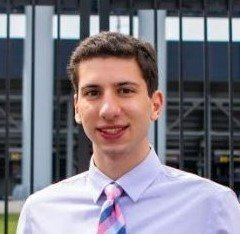
I am fearful for the fate of the Western Armenian language. In 2010, Western Armenian joined UNESCO’s list of endangered languages. Each language on the list is assigned a severity level on a five-tiered scale ranging from vulnerable to extinct. Western Armenian joined the list with the status of definitely endangered (the tier following vulnerable), which means it’s a language that “children no longer learn as their mother tongue at home.”
Western Armenian is the language spoken by many Diasporan Armenians around the world. From this beloved language blooms our culture. Our Armenian Diaspora heritage, values, identity, humor and community are all framed and more robustly appreciated through language. Western Armenian binds our communities and brings a new perspective to our culture.
This is why I am fearful for the fate of Western Armenian. I am no linguist nor sociologist, but I am a Diasporan Armenian seeing the breakdown of a cultural foundation begin to loom within my community.
There are those who are fortunate to learn Western Armenian as a first language. And, there are those whose upbringing does not present natural circumstances to cultivate the language.
Those, like myself, who were unable to maintain a fluent speaking foundation, must find alternative ways to attain proficiency. There are resources, programs and schools, ranging from elementary to college level, available to help develop proficiency. But such mastery is challenging without these well-structured programs or fluent parents to learn from.
In the US, the country with one of the largest populations of Western Armenian speaking Diaspora, there are only about 13 major universities with Armenian Studies programs. This leaves few formal language education opportunities for students without exposure in their youth. Yet, even those who learn Western Armenian following their formative years will have difficulty passing it on.
Typically, a second language outside of its cultural context will languish after the second generation. This becomes especially apparent if, at any point, only one parent bears the linguistic touch. Many Armenian families have reached the second generation or have only one fluent parental figure. Combined, these conditions mark a sense of urgency for Western Armenian language education.
Exceptions to this generational language atrophy are apparent with strong community pockets where the second language is commonplace. Western Armenian is fortunate to have community pockets like these around the world, but I fear many locations are losing the language.
As the language slowly goes, so does our culture. The fight for our language is as important as any other Armenian cause. It is a cultural civil war most are unaware they are fighting and losing. The loss of this language will mark a defeat from genocide which roots the starting of this cultural endangerment.
But, I refuse to let the prophecy, “definitely endangered,” define my ambition. I want to hear my children speak Armenian. I want to hear my children’s children speak Armenian. I am afraid of a time when the Armenian Diaspora community will only know Western Armenian as beautiful and incomprehensible sounds in folk songs and recordings. No generation today will experience such conditions, but one day, this may be the reality.
The Armenian people have survived attempted annihilation. Let us show that the Armenian community is strong enough to prove this prophecy wrong.



Michael, you write that “you are fearful for the fate of the Western Armenian language”. Your fears are not unfounded. But I am glad to read that you have set a goal for yourself to become fluent in Armenian. Such attitude and determination by the young and upcoming give hope for the perpetuation of the Western Armenian language. Յաջողութիւն քեզի։
I like to challenge myself to learn languages that most don’t speak. Not dead languages but those still spoken today. Armenian (Western Armenian) eludes me on common apps or open learning platforms like duolingo etc. Where is a good place to start myself from?
I want to learn Western Armenian as part Armenian myself, sadly my great grandmother did not teacher her daughter Armenian, so she doesn’t know so my dad doesn’t know and I dont know Armenian. But I want to learn to speak Armenian and help keep the language alive while doing so. I don’t know any Armenian people so I can’t practice with them. Any suggestions?